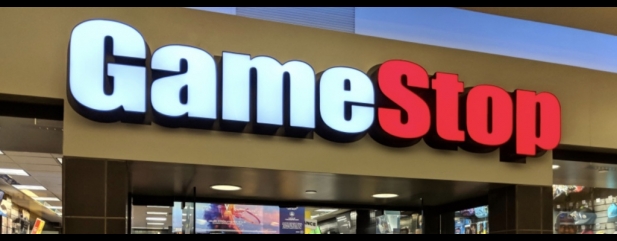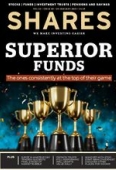Archived article
Please note that tax, investment, pension and ISA rules can change and the information and any views contained in this article may now be inaccurate.
Surge in amateur day traders suggests final stages of market bubble

Euphoria by US retail investors over certain stocks has raised concerns that we are in the final stages of a stock market bubble. This adds to a list of under-appreciated risks to markets which includes widespread optimism that stocks will continue to rise due to a combination of easy money, extreme valuations in bonds, and a rebound in growth thanks to the rollout of Covid vaccines.
As it is, markets have started strongly this year, shrugging off new variants of the coronavirus as well as a Democratic sweep of the US Senate which many observers feared could trigger a collapse in tech stocks on concerns over tighter regulation and a spike in bond yields on worries over greater stimulus spending.
One of the biggest factors driving share prices higher in the US is a dramatic increase in speculative buying of stocks by new and inexperienced investors, encouraged by commission-free trading on platforms such as Robinhood together with an explosion in financial tips on social media platforms such as Twitter, TikTok and Reddit, often by individuals with very limited investing knowledge and no reference to the risks involved.
CHASING UNLOVED STOCKS
With many established technology stocks trading at sky-high valuations, day traders have turned their attention to low-priced stocks – or penny stocks as they used to be known – which tend to be highly illiquid.
By using message boards and posting videos on social media platforms, they build support for unloved stocks – frequently with poor balance sheets and many with a long history of losses – in order to buy in a concerted way and send the shares higher.
Some of those caught up in the speculation are first-time investors in the US using their government stimulus cheque to buy single-stock call options, which allow them to put down a small amount in exchange for potentially large gains, rather than buy the shares outright.
The combination of a large volume of buy orders in stock and call options typically forces the broking firms on the other side of the trade to buy stock themselves, to hedge their positions in case the share price moves towards the strike price of the option.
A typical example is Blue Sphere, a tiny profitless company whose shares rose 450% in a single day earlier this month on volume of more than 2 billion shares.
According to data from Bloomberg and Ally Financial, the volume of over-the-counter share trading in US penny stocks more than trebled between November and December and today is more than 10 times the level of a year ago.
At the same time, small buying of call options – often as little as one contract – now makes up nearly 10% of options volume on the New York Stock Exchange.
HISTORY REPEATING
Speculators are also being drawn to Special Purpose Acquisition Companies, or SPACs, of which more than 200 have listed in recent months. These are investment companies whose only assets are cash, with the intention of buying another company. Many have no revenues let alone profits, yet their shares have been turbocharged by a legion of buyers desperate for some new investment opportunity and speculating over what these cash shells might buy.
Echoes of the South Sea Bubble of the 1720s are hard to ignore. Put simply, speculation in assets such as penny stocks and SPACs has reached levels rarely seen in the past and only seen in the final stages of a stock market bubble, where higher prices are sustained not by fundamentals but by faith that a ‘greater fool’ will pay an even higher price.
GAMING THE SYSTEM
The poster stock for speculators has been shopping mall-based video games retailer Gamestop. Having been the target of short sellers for many years due to its inability to turn a profit, Gamestop’s shares were heavily hyped on Reddit’s ‘wallstreetbets’ message board and soared over 100% in intraday trading last Friday (22 Jan).
That was followed by an intraday gain of 145% on Monday and a further intraday gain of 220% on Tuesday, taking its market value to $10.3 billion.
While some people enjoyed large gains, the spike also generated billions of dollars of mark-to-market losses for short sellers, including Melvin Capital which was said to have lost 30% this month on short bets including Gamestop and required a $2.75 billion capital injection from its backers.
Short selling involves taking a bet that a stock’s share price will decline. The individual would effectively borrow shares from someone else for a small fee, sell them to raise capital and buy the same number of shares again at cheaper price in order to return the stock to the original lender, keeping the difference in price as profit.
If the shares go up in value then the short seller will either have to put more cash into their trading account to keep the bet going or be forced to buy stock at a higher price in order to close out their position.
The forced purchase is known as a short squeeze and some investors in the US are now targeting heavily shorted stocks in the hope that a cocktail of hype and short sellers being forced to buy will turbocharge the share price. This is a very risky strategy which could backfire with disastrous consequences.
Some of the names being targeted on ‘wallstreetbets’ include US mobile handset maker Blackberry and Finnish telecom equipment supplier Nokia.
Important information:
These articles are provided by Shares magazine which is published by AJ Bell Media, a part of AJ Bell. Shares is not written by AJ Bell.
Shares is provided for your general information and use and is not a personal recommendation to invest. It is not intended to be relied upon by you in making or not making any investment decisions. The investments referred to in these articles will not be suitable for all investors. If in doubt please seek appropriate independent financial advice.
Investors acting on the information in these articles do so at their own risk and AJ Bell Media and its staff do not accept liability for losses suffered by investors as a result of their investment decisions.
Issue contents
Editor's View
Feature
First-time Investor
Great Ideas
- Act fast with Brunner to secure very cheap access to good stocks
- Stick with Yamana Gold despite falling share price
- Don't be tempted to take profit on Treatt following recent share price spike
- Good strategic process is helping to drive up shares in PZ Cussons
- Ford shares electrified and there could be more to come
- There is so much to like about ASOS as an investment
Investment Trusts
Money Matters
News
- Surge in amateur day traders suggests final stages of market bubble
- Terry Smith denies overexposure to highly valued tech firms
- Market excitement is building over electric vehicle growth
- Rolls-Royce under pressure after new setback
- Asian stock markets have raced ahead so far in 2021
- Companies may tap investors again for cash to survive the crisis

 magazine
magazine










